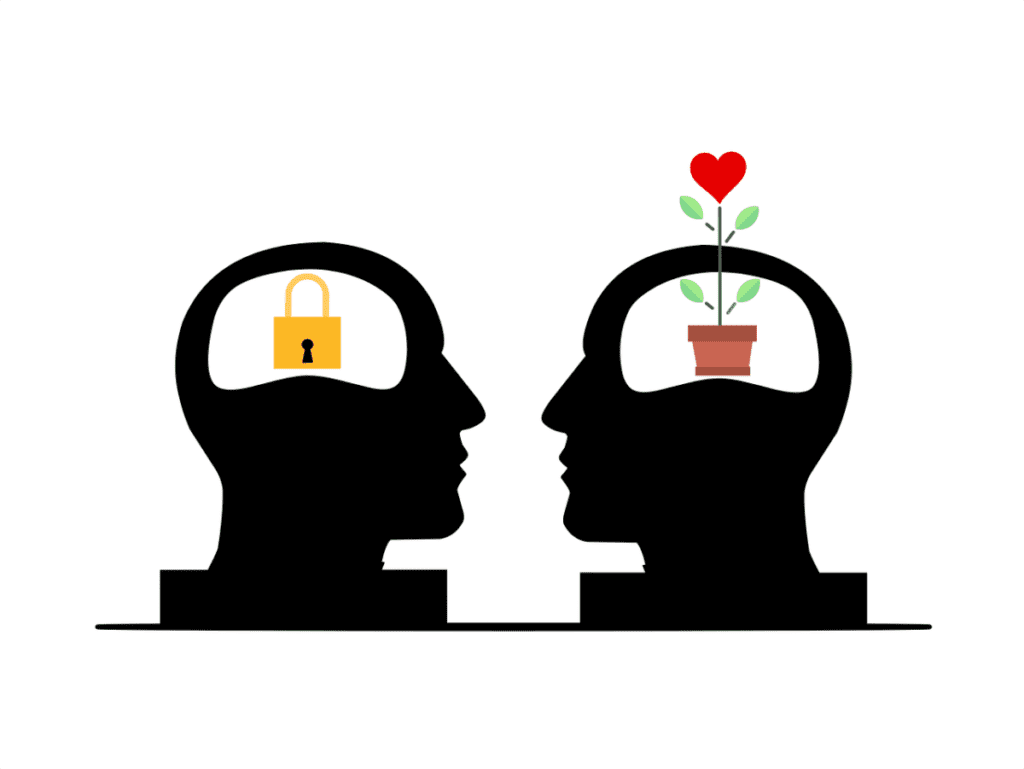Translations, from Portuguese, are automatic. If you notice any errors in the text, help us identify them, clicking here.
Subscribe to our Newsletters and receive our articles directly in your email.
Continuation of the article Spiritism: The Idea of Jesus. Are we going to better understand the differences between the true mentality and the false idea?
Over time, the true mindset and false idea have taken root in the world's traditions in various ways. Religions have always embedded competition, dispute and the law of the strongest into their teachings.

The Christian tradition considers that Jesus was announced by John the Baptist and foreshadowed by repentance: “repent, for the kingdom of heaven has come near”. With this thought, we had to repent of our sins, of our mistakes. This education leaves us full of guilt, because if I made a mistake, I need forgiveness to be saved.
TO MAKE AN ERROR IS A SIN, says Christianity.
Religions used this idea to say that only God's forgiveness saves those who make mistakes, and those who disobey are eternally punished and handed over to the devil. This thought was not only implemented by religions: at work, if you make a mistake you will be fired, in the family, if you make a mistake you will be ignored, and this happens in countless situations. In life, you can't go wrong! People use pretense, hide, camouflage mistakes, falsehood, because remember: making mistakes is a Sin. This triggers several consequences, including that people are not as they truly are, nor do they feel included, lost, aimless.
That's why we have to understand Spiritism's message of belonging, of being part, of collaboration. We have to seek this understanding. We have to put aside the idea that the strongest will save the simple, the ignorant, that the strong and outstanding are bigger and better.
To make the truth count, you have to do good! But it is necessary to reform the way these teachings are taught, changing how and what is taught to children, with structural changes in schools. Competition cannot be the stimulus for learning. False ideas are taught when children are told that fighting serves to stand out, to be superior, to be better than others, to be “among the superiors”, so as not to be rejected by society. This mentality is false!
Cooperation is the key to changing the world! It is not the superior that makes the world move forward, but everyone's cooperation! says Spiritism
However, the most recent translation work on the gospels makes it clear that the Greek verb methaneô, linked to the noun metanoia, has the meaning of “changing mentality”. Frederico Lourenço explains: “At the heart of the word is the word nous (“mind”): hence the fact that the essence of the idea is anchored in mental change (of which regret is a symptom)” (New Testament).
Verse 14 of chap. 1, by Mark, goes like this:
14 After John [the Baptist] was betrayed, Jesus went to Galilee to proclaim the good news of God, 15 saying: “The time has come and the kingdom of God has come near. Change your mentality and believe in the good news.”
Mark: 1:14-15
With this simple passage from the Bible, we completely transform the understanding of the meaning of Repentance: there is a need to change our mentality to overcome a false mentality! It is not regretting the mistake, but changing the way of understanding, Change your mindset.
This article was prepared based on a lecture given by Paulo Henrique de Figueiredo. Click here to meet her.
Continue on Passive Obedience and Blind Faith – The Two Principles of the False Idea
Reading Recommendations (Books)
- Free PDFs by Kardec – https://bit.ly/3sXXBxk
- Autonomy – The Untold History of Spiritism: https://amzn.to/3PIvbyy
- Allan Kardec's Legacy: https://amzn.to/3RIn2gv
- Final point – the reunion with spiritualism with Allan Kardec: https://amzn.to/48PLaE7
- Neither Heaven nor Hell – The Laws of the Soul According to Spiritism: https://amzn.to/3F2voYO
- Genesis – Miracles and Predictions According to Spiritism (unadulterated): Free PDF or https://amzn.to/3RM91hF
- Heaven and Hell: Or divine justice according to Spiritism (unadulterated): Free PDF or https://amzn.to/3ZGrcal
- Spiritist Revolution. Allan Kardec's forgotten theory: https://amzn.to/3t7HIUH
- Mesmer. The denied science of animal magnetism: https://amzn.to/3PYc1X2
- The Book of Mediums: https://amzn.to/3PDNTHK
- The Spirits' Book: https://amzn.to/3QkcFx9
- Spiritist Magazine – complete collection: https://amzn.to/48Uxh7s
- Practical Instructions on Spiritist Manifestations: https://amzn.to/3QiR8Gc
- Spiritism in its Simplest Expression: https://amzn.to/3M6fXT5

